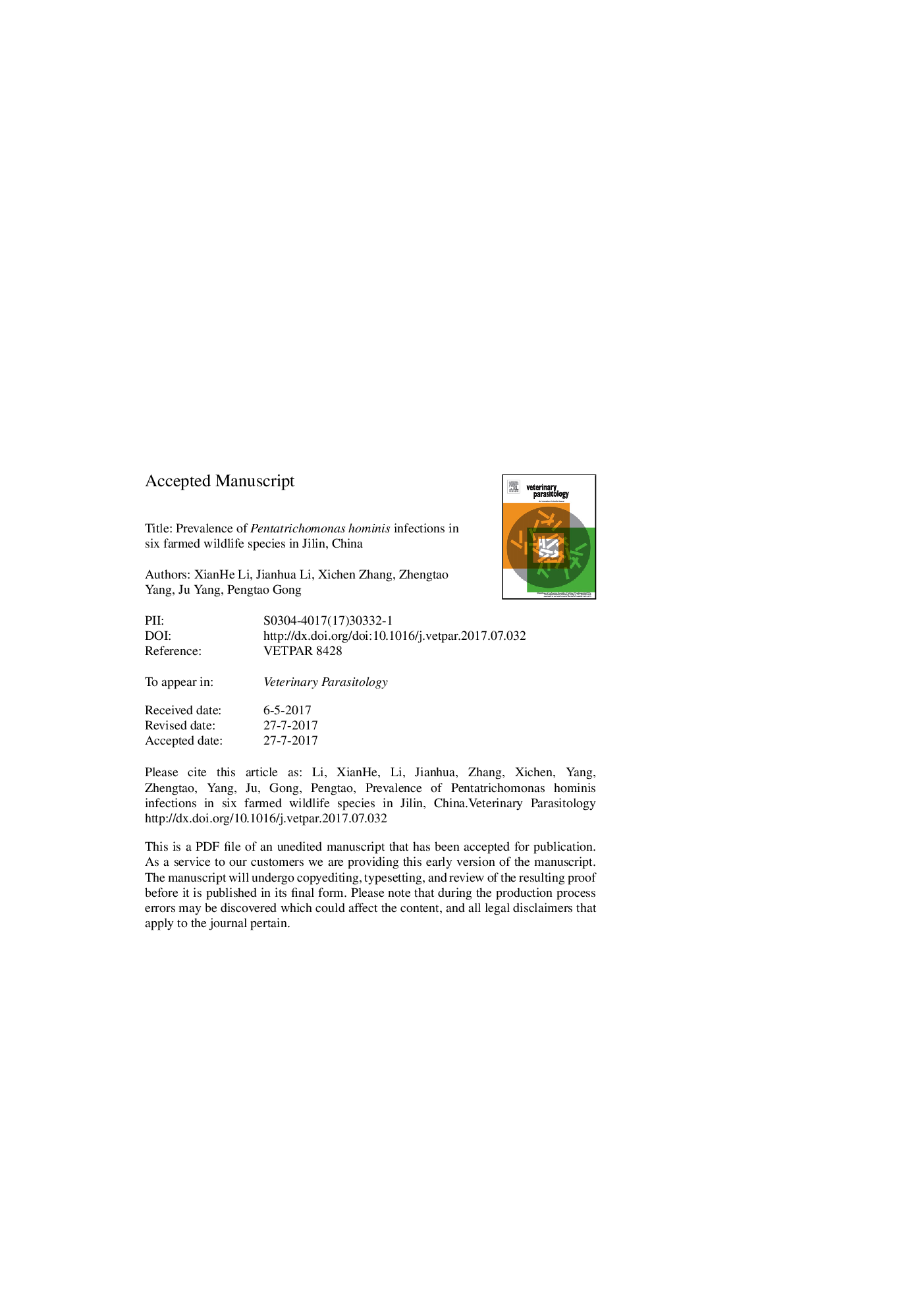| Article ID | Journal | Published Year | Pages | File Type |
|---|---|---|---|---|
| 5545570 | Veterinary Parasitology | 2017 | 15 Pages |
Abstract
Pentatrichomonas hominis is an anaerobic flagellated protozoan that primarily parasitizes the gastrointestinal tract and is a conditional pathogen. It has an extensive host range and is well known as a potential causative agent of zoonotic disease. The objective of this study was to provide the first findings of the prevalence of P. hominis in six farmed wildlife species, sika deer (S.D.), Rex rabbits (R.R.), blue foxes (B.F.), silver foxes (S.F.), raccoon dogs (R.D.) and minks (M.), that are commercially important in Jilin Province, China. In this study, 450 faecal samples were tested for P. hominis infection by culturing and nested PCR assays. The average prevalence of P. hominis infections were as follows: S.D. 20% (26/130), R.R. 16.25% (13/80), B.F. 45% (27/60), S.F. 43.33% (26/60), R.D. 53.33% (32/60) and M. 48.33% (29/60). The prevalence in herbivores (18.57% for S.D. and R.R.) was significantly lower than that in non-herbivores (47.5%). PCR product sequencing indicated that infections were mainly caused by the P. hominis strain Changchun Canine 1, and we found a P. hominis strain with a mutated sequence, Changchun-RR, which had three mutations compared with the referenced homologous P. hominis sequences. Morphological observations of the Changchun-RR strain showed that it was similar to P. hominis. Our study suggests that P. hominis is widespread in six farmed wildlife species in Jilin Province and provides baseline information for the presence of this parasite in these animals.
Related Topics
Life Sciences
Agricultural and Biological Sciences
Animal Science and Zoology
Authors
Xianhe Li, Jianhua Li, Xichen Zhang, Zhengtao Yang, Ju Yang, Pengtao Gong,
